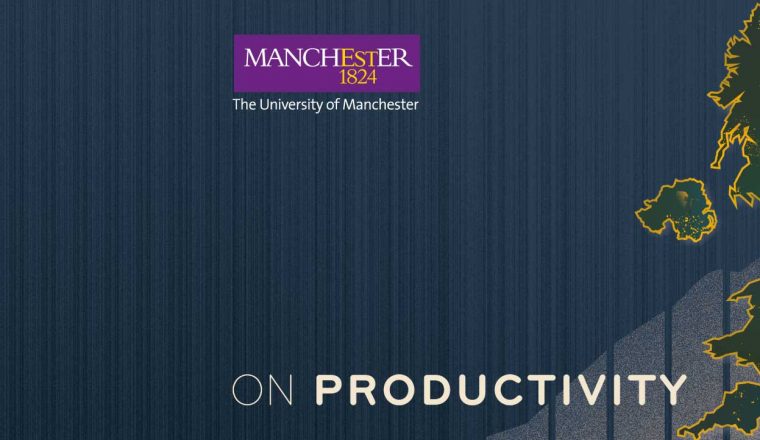Trends in Productivity
As countries around the world are hoping to recover from the COVID-19 pandemic, the question arises if a revival in productivity growth could be part of the recovery.
The Productivity Institute’s Managing Director Professor Bart van Ark discusses the opportunities of an anticipated productivity expansion in a webcast of The Conference Board: Window On: Trends in Productivity hosted by its Chief Economist, Dana Peterson, and with two other panellists , Jaana Remes, Economist and Partner at McKinsey Global Institute (MGI) and Klaas de Vries, Economist at The Conference Board.
“The virtuous cycle”
Jaana Remes, Economist & Partner at McKinsey Global Institute explains the virtuous cycle that is needed to improve productivity. Companies have been forced to change the way they work by using technological innovations during the pandemic. If these companies continue to change and “build back better” than this could improve income, living standards and sustainability which are all closely linked to an improvement in national productivity growth starting the virtuous cycle.
Can productivity and wage growth be linked up?
However, Bart van Ark points out that the link between productivity and wage growth has broken. Large companies have been able to increase wages as an incentive for employees and use innovation to improve their productivity but many SME’s are creating jobs with low salaries even if they show decent productivity growth. This leads to a large number of low value companies and their workers falling behind their peers in larger companies.
Therefore he asks how do we support these businesses? How do we ensure they are not left behind and that this virtuous cycle works for them too in the long term?
How can SME’s increase productivity as well?
In the UK the business sector is home to about 7,800 large businesses (companies with 250 or more employees) making a major contribution to employment and turnover. Other figures from the Department for Business, Innovation and Skills showed that there are about six million SMEs, accounting for 16.8 million employees (or 61% of the total employment) and around half of turnover in the UK private sector. And, of those 5.94 million UK businesses were small firms employing nought to 49 employees.
Therefore the contribution that SMEs make to society, income and living standards is huge which is why it is so important to centre this debate and any ideas for improvement on them. A huge amount of companies and employees could be left behind if the government does not step in to change things in order to get productivity going again.
The pandemic has accelerated trends in innovation, automation, and digital transformation that may catapult productivity growth. To sustain this our research requires going beyond the national aggregates and the “virtuous cycle” that Jaana refers to. By developing practical proposals for raising productivity in firms, regions, and for society as a whole economic growth could be achieved which is what the Productivity Institute aims to provide across the UK.
This blog is based on the webcast: Window On: Trends in Productivity, April 2021.




